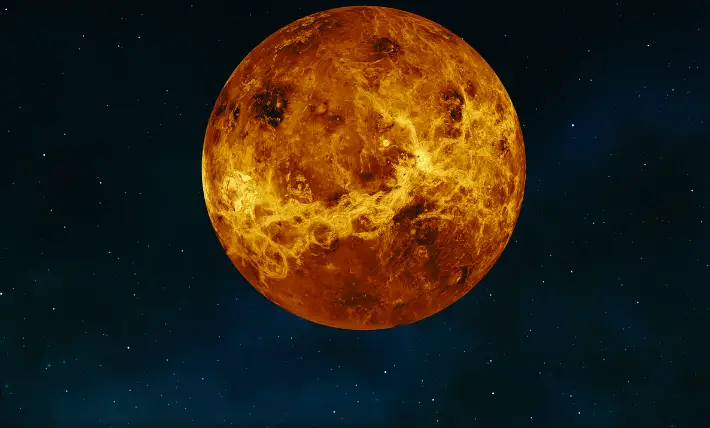Introduction: Our solar system is home to a plethora of fascinating heavenly bodies, each of which has its own set of distinguishing traits that set it apart from the others. When we think about the planets, we frequently connect each of them with the moons that orbit around it. However, there is a significant deviation from this trend in the form of Venus, which is the planet that orbits closest to the Earth. This article will go into the fascinating topic of why Venus does not have a moon, investigating the various scientific theories and hypotheses that have been proposed to explain the lack of a satellite in Venus’s orbit.
Understanding How Moons Are Formed In order to appreciate the reason why Venus does not have a moon, we must first investigate the underlying concepts that go into making moons. The most widely accepted theory postulates that moons originate in the accretion rings that initially surrounded young planets. Within these disks, small particles progressively coalesce into larger ones to produce moon-sized bodies. There is also the possibility that massive objects may collide with a planet, causing the planet to expel debris into space, which would later come together to form moons.
The Terrestrial Planet Venus Venus is a terrestrial planet that is comparable to Earth in terms of its size and composition. It has an atmosphere that is primarily composed of carbon dioxide and is going through a phase of runaway greenhouse effect, which is making the surface of the planet inhospitable due to the high temperatures and the high atmospheric pressure. Venus is distinct from Earth in that it does not have a moon, despite the fact that the two planets share many features.
Theoretical Accounts and Explanatory Models:
- The Initial Formation of the Moon: According to one school of thought, Venus may at one stage in its early history have been accompanied by one or more moons. There is a possibility that the moon was either ejected from Venus or absorbed back into it as a result of violent cosmic events like a massive impact. It is possible that these cataclysmic collisions took place during a time period called as the Late Heavy Bombardment, which was characterized by tremendous planetary formation and bombardment.
- The dynamics of Venus’ orbit suggest that the planet never had a moon because of its close proximity to the sun. The gravitational contact that Venus has with our star has a considerable impact on the dynamics of Venus’s orbit, as Venus circles closer to the Sun than Earth does. Because of the immense force of the Sun’s gravitational attraction, any object in the vicinity of Venus that possessed the capability of developing into a moon would almost certainly become unstable, and either be ingested by the Sun or expelled from the solar system.
- A Deficit in Planetary Migration It is possible that the absence of major planetary migration on Venus is another element that contributes to the planet’s lack of moons. The process through which gravitational interactions drive planets to modify their orbits is known as planetary migration, and it is a common occurrence in the early stages of the creation of a solar system. This migration almost always results in the acquisition of moons. On the other hand, it’s possible that Venus did not suffer major migration, and as a result, it missed out on the chance to acquire a moon.
- Resonance Effects: In some instances, the development of moons can be affected by planets that are in close proximity to one another. For example, the development of our moon was significantly influenced by the gravitational pull of Jupiter and Saturn’s tides. These two planets are known as the gas giants. Because Venus does not have a resonance relationship with any other large planet, the possibility of it acquiring a moon through this mechanism is lower than it is for other planets.
The fact that Venus does not have a moon in orbit around it is something that has long been of interest to the scientific community. A number of hypotheses offer explanations that are consistent with observations, despite the fact that the precise reasons why Venus does not have a moon are still unknown. This odd occurrence may have been caused by a number of variables, including but not limited to the presence of violent collisions in the planet’s early history, its close closeness to the sun, the lack of significant planetary migration, and the absence of resonance effects. The investigation of Venus and the question of why it does not have a moon is still an active field of inquiry, and upcoming space missions might be able to shed further light on this perplexing planetary riddle.
![]()
